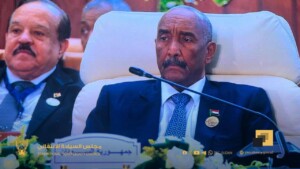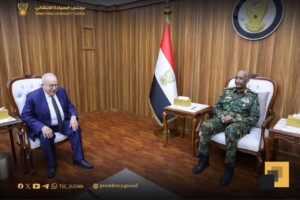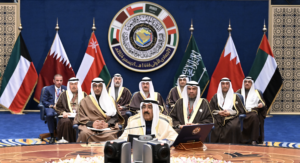Eastern Sudan peace agreement will ‘definitely’ go ahead
The Sudanese government will definitely implement the eastern Sudan track protocol, part of the Juba Peace Agreement, signed by the Sudanese government and the Sudan Revolutionary Front rebel alliance in the South Sudanese capital on October 3 last year. The contents of the protocol led to fierce opposition from Beja leaders.
 Sovereign Council member, Lt Gen Shamseldin Kabashi R) leaves for Juba, accompanied by Omar Gamreldin, FA Minister, Osama Saeed, chairperson of the Beja Opposition Conference, and Khaled Idris, leader of the eastern Sudanese Popular Front for Liberation and Justice (SUNA)
Sovereign Council member, Lt Gen Shamseldin Kabashi R) leaves for Juba, accompanied by Omar Gamreldin, FA Minister, Osama Saeed, chairperson of the Beja Opposition Conference, and Khaled Idris, leader of the eastern Sudanese Popular Front for Liberation and Justice (SUNA)
The Sudanese government will definitely implement the eastern Sudan track protocol, part of the Juba Peace Agreement, it signed with the Sudan Revolutionary Front rebel alliance in the South Sudanese capital on October 3 last year. The contents of the protocol led to fierce opposition from Beja leaders.
Sovereign Council member Lt Gen Shamseldin Kabashi travelled to Juba for a one-day visit yesterday, accompanied by FA Minister Omar Gamreldin, and Osama Saeed, chairperson of the Beja Opposition Conference who headed the negotiation delegation for the eastern Sudan track, and Khaled Idris, leader of the eastern Sudanese Popular Front for Liberation and Justice.
In a joint press conference with Tut Galuak, head of the South Sudanese peace mediation team yesterday, Kabashi described the eastern Sudan track protocol in the Peace Agreement as “comprehensive”, and should not be frozen or suspended.
He strongly affirmed the government's commitment to removing all obstacles for the implementation of the protocol. “The text of the eastern Sudan agreement will be adjusted on a number of points in the coming days,” he said.
Kabashi added that he briefed Galuak about the high committees that were formed to implement the agreement.
The chief mediator announced that the mediation team will visit Khartoum next week, to discuss progress in the agreement’s implementation, discuss the eastern Sudan file, and demand the Sudanese government implements the agreement according to timetables for all tracks (Darfur, southern Sudan, eastern Sudan, central Sudan, and northern Sudan).
Previous challenges
In September, the participants of the Peace, Development and Justice Conference, organised by the High Council of Beja Nazirs* and Independent Chieftains in Sinkat in Red Sea state, demanded the right to self-determination for eastern Sudan.
Following the conference, a group of 22 tribal chiefs separately handed Lt Gen Mohamed Hamdan ‘Hemeti’, Vice President of the Sovereign Council, a memorandum in which they reject “any direct involvement of the Native Administration in politics, which would be political action under a tribal cover and which would create discord and confusion in eastern Sudanese society”.
The conference held in Sinkat was not the first attempt to challenge the eastern Sudan track accord, that was signed in Juba in February this year by the Sudanese government and the Sudan Revolutionary Front (SRF) rebel alliance as part of the comprehensive peace agreement for Sudan.
Eastern Sudanese leaders already denounced that track accord on eastern Sudan before it was signed. Abdallah Mousa, Chairman of the Beja Congress-Freedom and Change faction, categorically rejected the deal, calling it “worthless”. The community leaders called for a separate conference instead, to deal with the specific issues of the east.
Sudan-Ethiopia border dispute
In a press statement, acting Foreign Affairs Minister Omar Gamareldin, said that Kabashi briefed South Sudanese President Salva Kiir Mayardit about developments in eastern Sudan, the border issues with neighbouring Ethiopia, and the war in the neighbouring Tigray region during a meeting in Juba on Thursday.
Following the meeting, Kiir called on the Sudanese government to reach a negotiated settlement to the border dispute with Ethiopia. Kiir “doesn’t want any more war in the region and urged the two countries to resolve their issues in a peaceful manner," said the statement issued by the South Sudanese presidential media service after the meeting with Kabashi.
* A nazir is a state-appointed administrative chief of a tribe, according to the Native Administration system in Sudan.
Radio Dabanga’s editorial independence means that we can continue to provide factual updates about political developments to Sudanese and international actors, educate people about how to avoid outbreaks of infectious diseases, and provide a window to the world for those in all corners of Sudan. Support Radio Dabanga for as little as €2.50, the equivalent of a cup of coffee.












 and then
and then